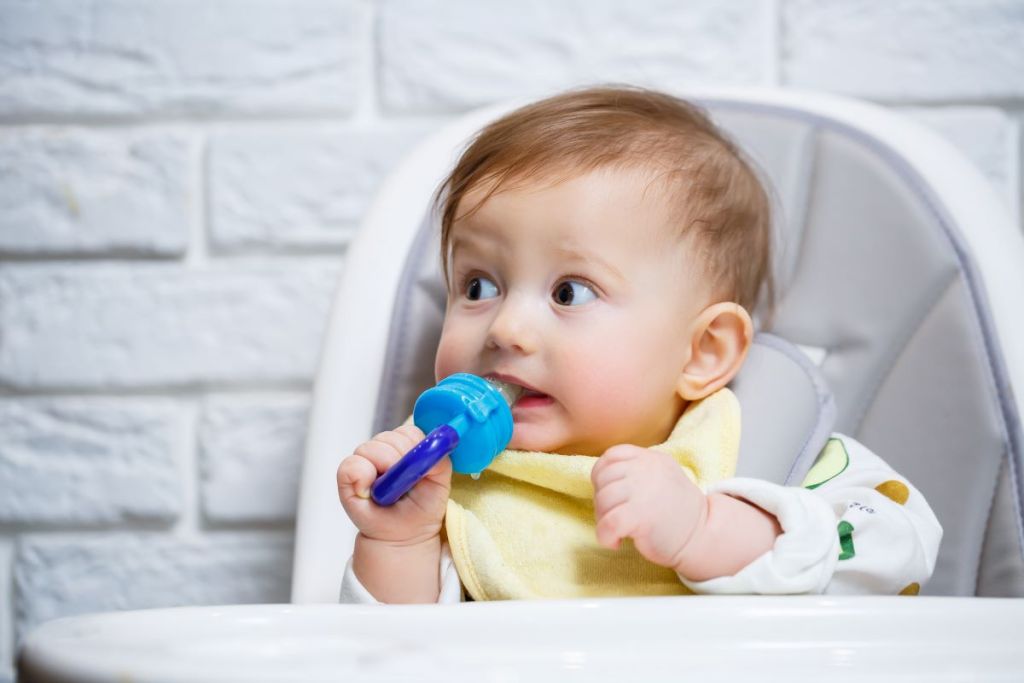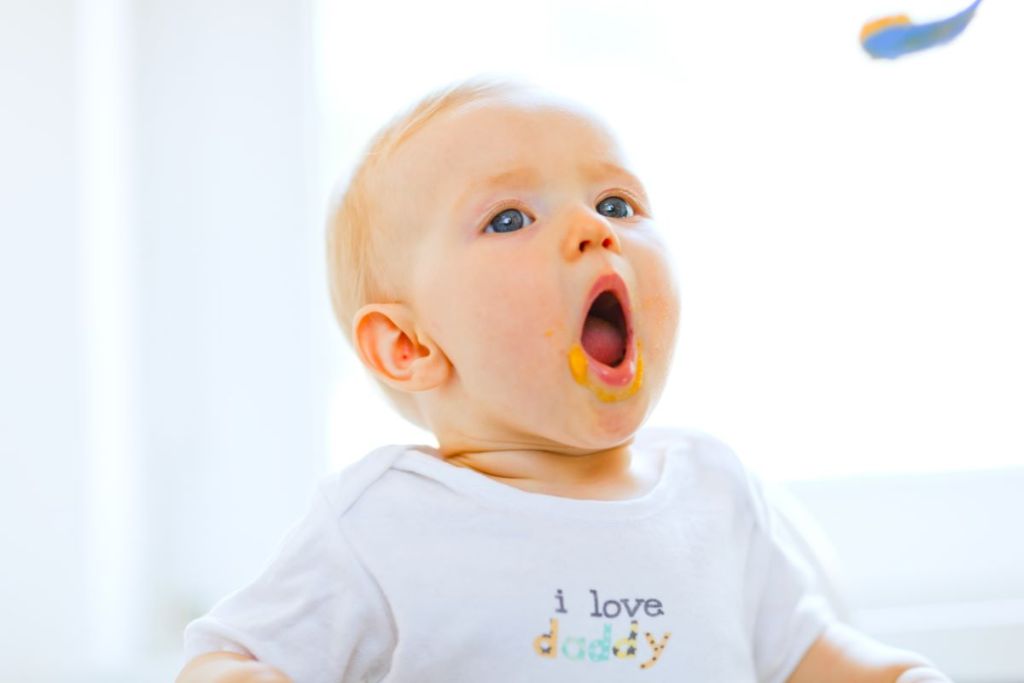As your baby’s first year flies by, a lot of questions go through your mind. One of these important questions includes “when can my baby eat solid food?” The American Academy of Pediatrics recommends that mothers introduce solid food to babies no earlier than 4 months; although 6 months is considered to be the ideal age.
However, we understand that at times, it’s hard to tell when a baby is ready to make the jump from liquids to solid food. So, we have listed signs to watch for when deciding on solid foods for baby.
When can my baby eat solid food?
First, the baby should have firm control of the head and the neck. Although he or she isn’t sitting up without support yet, being able to hold the head up lessens the chance for gagging or choking. You can anticipate this milestone between the ages of four to six months old.
Make sure your baby keeps the food inside the mouth
If you try feeding your baby solid food before the age of four months, you’ll notice that he or she pushes the food out with the tongue. This is a natural biological tongue reflex that babies lose between four to six months. Afterward, eating any solid food becomes easier if it’s strained or pureed. If you notice that they swallow instead of pushing the food back onto the spoon, then you have the green light for solids.

Observe how often your baby places objects in his or her mouth
When you see babies putting objects like small toys in their mouths, this indicates a readiness for solid food. In fact, this might even be a sign that they are old enough to start learning how to use a spoon. Either way, this development of fine motor skills clears the path for picking up small pieces of food as well as learning how to hold a sippy cup and to use utensils.
Check your baby’s weight
Before introducing solid foods for baby, he or she should weigh close to twice their birth weight as noted by pediatrician, Dr. Madhushree Desiraju. However, while this is a common indication that your baby is ready for solid foods, it doesn’t apply to some situations. For example, if your baby was born prematurely, he or she might reach this milestone as early as 8 weeks, but developmentally, his or her digestive system won’t be ready for solids. Conversely, some babies reach 14 pounds rather quickly, so it’s best to watch for the other signs of head and neck control and of course, be mindful of their age.

Watch for any interest in what you’re eating
How does your baby behave when watching other people eat? Does he or she reach out for the food? All these signs indicate your baby is ready for solid food. Also, you might notice that your child reacts to the sight of food by opening his or her mouth. Plus, he or she might reach for your plate if sitting close enough to you. These actions will tell you that your baby is curious enough to try solids. Of course, you’ll need to take caution with the types of foods that you allow your baby to try.
Carefully and gradually, introduce solid foods for baby
You should also note that feeding your baby with solid foods prior to 4 months of age might lead to digestive issues. Plus, once you get to the point where your child is ready, knowing which solid foods for baby are best and how to prepare them helps you to avoid any mishaps like choking or aspirating. Here are a few tips from Dr. Desiraju:
It is crucial to start feeding them one food at a time for three to five days. It helps you identify what works for your child and what does not.
- Start with small amounts like a teaspoon at a time.
- Wait until after breast or bottle feeding to give solid foods
- Introduce a single-grain cereal mixed with formula or breast milk
- Incorporate pureed vegetables, fruits, and meats one food at a time
- Wait a few days before trying a new food to check for allergies
- Refrain from giving your baby processed meats like hot dogs or cold cuts
Finally, if you’re preparing your own baby food, you’ll need to remember to avoid honey (which might cause botulism), seeds, and fruit juices. On the other hand, you can also find some excellent, nutritious baby foods that are already pre-made. Either option would work well.
Sometimes when questioning “when can my baby eat solid food,” parents might get overly enthusiastic about sharing what’s on their plate. There’s no need to worry. Your child will gain the right amount of nutrients from formula or breast milk while exploring the healthiest choices of solid foods.



